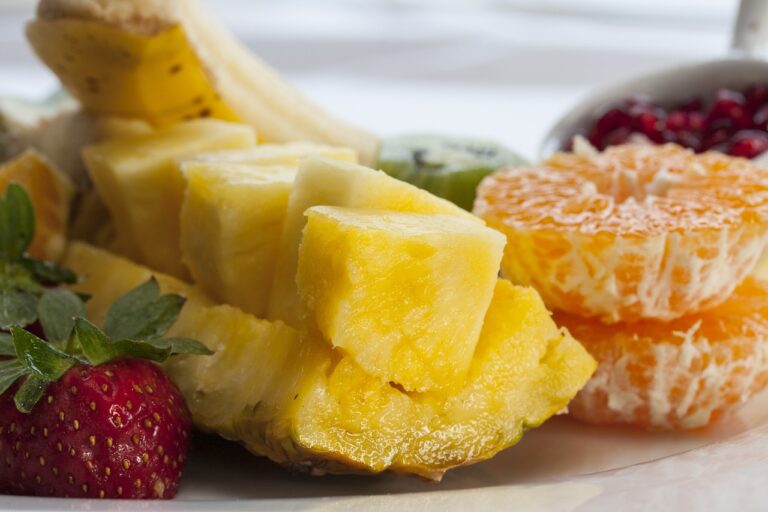Exploring the Art of DIY Natural Skincare
When it comes to skincare, the use of natural ingredients brings a multitude of benefits. Natural ingredients are often free from harsh chemicals that can irritate the skin, making them suitable for even the most sensitive skin types. Additionally, natural ingredients are rich in vitamins, minerals, and antioxidants that can nourish and rejuvenate the skin, providing a more vibrant and youthful complexion.
Furthermore, natural ingredients are often more environmentally friendly as they are sustainably sourced and produced. By opting for skincare products with natural ingredients, you are not only benefiting your skin but also contributing to a more sustainable and eco-friendly beauty routine. Overall, incorporating natural ingredients into your skincare regimen can lead to healthier, happier skin in the long run.
Understanding Different Skin Types and How to Cater to Them
When it comes to skincare, understanding your skin type is crucial in order to choose the right products and routines that will cater to its specific needs. There are four main skin types: normal, dry, oily, and combination. Normal skin is well-balanced and neither too oily nor too dry, requiring minimal upkeep. Dry skin tends to feel tight and rough, often needing richer moisturizers to restore hydration levels. On the other hand, oily skin produces excess sebum, leading to shine and potential breakouts if not managed properly. Combination skin features a mix of both oily and dry areas, requiring a balanced approach to address different needs on different parts of the face.
Once you have identified your skin type, it is important to tailor your skincare routine accordingly. For normal skin, a gentle cleanser and lightweight moisturizer may suffice, focusing more on protecting the skin barrier. Dry skin benefits from hydrating ingredients like hyaluronic acid and ceramides to lock in moisture and improve elasticity. Oily skin types can benefit from products that control oil production, such as mattifying cleansers and oil-free moisturizers. Combination skin requires a combination of products that address the different needs of oily and dry areas, such as using different cleansers or moisturizers on specific zones of the face. By understanding your skin type and selecting products that cater to its specific requirements, you can achieve a healthy and glowing complexion.
Essential Oils and Their Role in DIY Skincare Recipes
Essential oils have gained popularity in the realm of DIY skincare recipes for their natural benefits and aromatic properties. These concentrated plant extracts can be incorporated into various skincare products to offer a range of benefits, from soothing irritated skin to promoting a healthy glow.
When selecting essential oils for DIY skincare recipes, it is important to consider their individual properties and potential effects on different skin types. For example, lavender oil is known for its calming properties and is suitable for sensitive skin, while tea tree oil is prized for its antibacterial qualities, making it ideal for acne-prone skin. Experimenting with different essential oils can help tailor your DIY skincare creations to cater to specific skin concerns and preferences.
Lavender oil is calming and suitable for sensitive skin
Tea tree oil has antibacterial qualities, ideal for acne-prone skin
Experimenting with different essential oils can help tailor skincare creations to specific concerns
What are the benefits of using natural ingredients in skincare products?
Natural ingredients are gentle on the skin, free of harsh chemicals, and often have powerful healing properties that can nourish and protect the skin.
How can I determine my skin type and choose the right skincare products?
It’s important to identify whether you have dry, oily, combination, or sensitive skin so you can choose products that cater to your specific needs. Consult with a dermatologist if you’re unsure.
What role do essential oils play in DIY skincare recipes?
Essential oils are concentrated plant extracts that have various skincare benefits, such as moisturizing, anti-inflammatory, and antibacterial properties. They can be used in DIY skincare recipes to enhance the effectiveness of the products.
Are essential oils safe to use on the skin?
Essential oils are generally safe to use on the skin when diluted properly, but it’s important to do a patch test before using them to check for any allergic reactions. Some essential oils may be irritating to the skin if used in high concentrations.
Can essential oils replace traditional skincare products?
Essential oils can be a great addition to your skincare routine, but they may not necessarily replace traditional skincare products completely. It’s important to find a balance between using natural ingredients like essential oils and products that are specifically formulated to address your skincare concerns.







